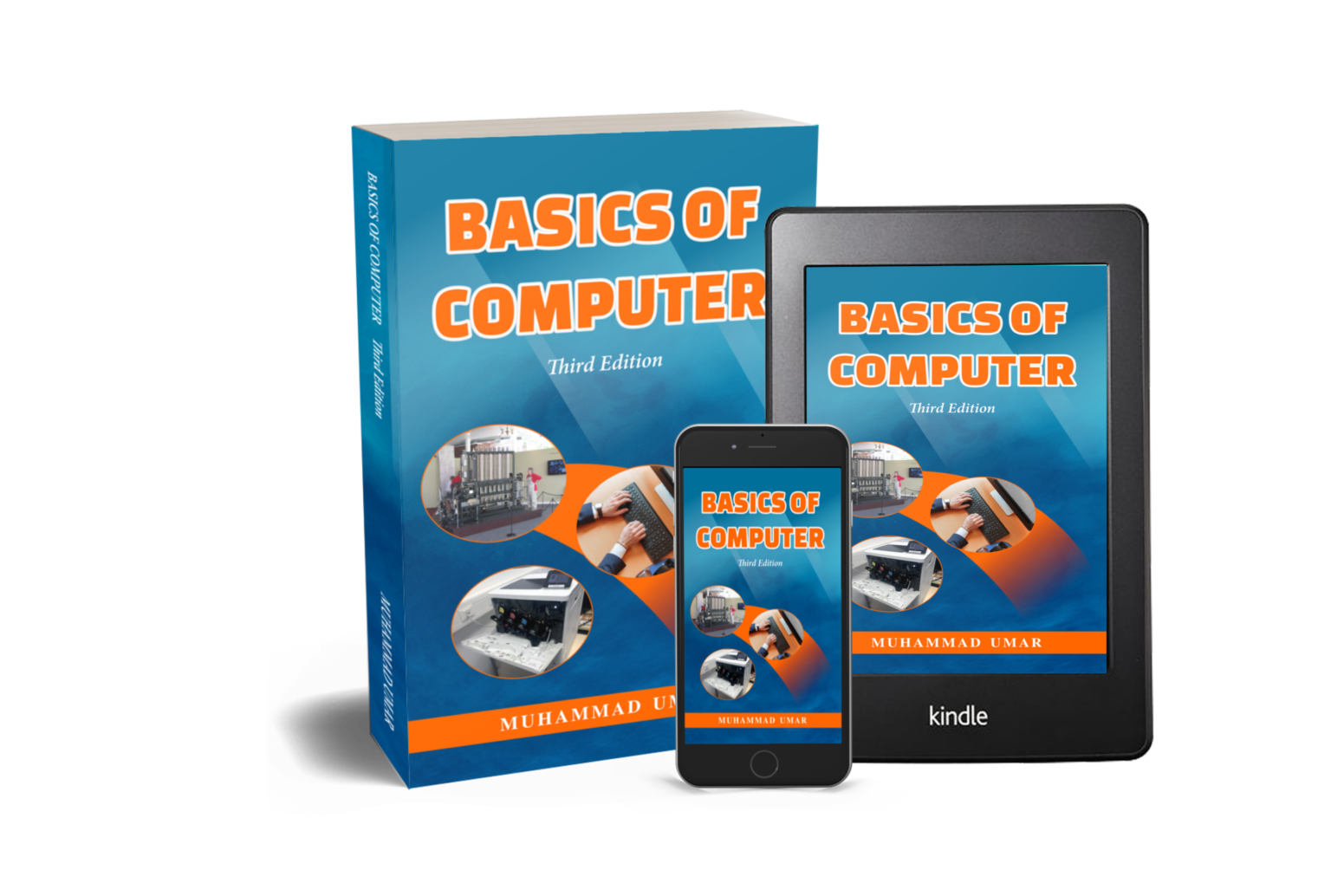Introduction to MS Office Course Outline 2023
This article provides an overview of the course contents, outlines, syllabus, and reference materials for the Introduction to MS Office Course Outline 2023 (DIT-Part 1). With approximately 26 topics, this course centers around Introduction to Office Automation Software, Microsoft Word, Microsoft Excel, Microsoft PowerPoint, and Microsoft Access. The study scheme, developed by the Khyber Pakhtunkhwa Board of Technical and Commerce Education in 2023, aims to foster a comprehensive understanding of the Microsoft Office suite.
INTRODUCTION TO OFFICE AUTOMATION SOFTWARE
1.1 Introduction
1.1.1 Open Source Software
1.1.2 Proprietary Software
1.2 Introduction to Microsoft Office Suite 2016
1.3 MS Office Applications’ Primary User Interface
1.3.1 Title bar
1.3.2 Quick Access Toolbar
1.3.3 Quick Access Toolbar
1.3.4 Ribbon
1.3.5 Ribbon Commands/Tabs
1.3.6 Document Page
1.3.7 Status bar
MICROSOFT WORD
2.1 General Features of Word processors
Editing, Formatting, Page Layout & Printing, Spelling & Grammar, Header & Footer, Picture / Table Insertion & Formatting, Screen Layouts.
2.2 BASIC EDITING
Creating a New Document, Saving a Document for the First Time, Saving Document in Different File Formats, Creating a Document Using a Template, Using Print Preview, Printing a Document, Opening an Existing Document, Using Zoom, Finding and Replacing Text, Using AutoCorrect, Cutting Copying and Pasting Text.
2.3 TEXT FORMATTING
Using the Font Group, Changing Fonts and Font Sizes, Applying Character Attributes, Setting Character Spacing, Using Format Painter, Applying Styles, Creating and Modifying WordArt, Using the Clear Formatting Button.
2.4 PARAGRAPH FORMATTING
Formatting Paragraph, Setting Indents (First Line, Hanging, Left, Right), Setting Line Spacing, Setting Paragraph Spacing, Creating a Bulleted List, Creating a Numbered List.
2.5 PAGE FORMATTING & PRINTING
The Layout Tab, Setting Margins, Selecting Page Orientation, Choosing Paper Size, Number of Columns setting, Page & Section Breaks. Selection of Printer, Print Settings.
2.6 CREATING TABLES
Using the Insert Table Dialog Box, Layout Tab on the Table Tools Ribbon (Using AutoFit, Resizing a Row or Column, Merging and
Splitting Table Cells).
2.7 URDU LANGUAGE SETTING AND TYPING
2.7.1 Built-in settings in Windows-10 OS
2.7.2 Using Pak-Urdu Installer in Older Windows OS
MICROSOFT EXCEL
3.1 General Features of Spreadsheets
Rows, Columns, Worksheets, Workbooks, Functions and Formulas, Editing, Formatting, Screen Layouts.
3.2 WORKING WITH EXCEL
Creating a New Workbook, Opening an Existing Workbook, Entering and Editing Data in Worksheet (Entering Basic Data, Deleting and Clearing Cell Contents, Entering Dates, Cutting, Copying and Pasting Data).
3.3 FORMATTING CELLS AND WORKSHEETS
Inserting and deleting cells, Merge cells, Format Cells by using Format
Painter, Insert and delete columns or rows, Insert headers and footers, Rename a worksheet, Add a worksheet to an existing workbook, Change magnification by using zoom tools.
3.4 USING FORMULAS AND FUNCTIONS
Understanding Formulas, Using Absolute and Mixed Cell References in
Formulas, Using Cell Ranges in Formulas, Summarizing Data Using Functions (SUM, COUNT, COUNTA, COUNTBLANK, AVERAGE,
MIN, MAX), Using Conditional Logic Functions (IF, AND, OR), Using Formulas to Conditionally Summarize Data (SUMIF, COUNTIF),
Using Formulas to Modify Text (LEFT, RIGHT, MID, TRIM, UPPER, LOWER, CONCATENATE).
3.5 CREATING CHARTS
Creating a new Chart, formatting a Chart with a Quick Style, formatting a Data Series, modifying a Chart’s Legend, choosing a different chart type, Switching Between Rows and Columns in Source Data.
3.6 EXCEL MACROS
3.6.1 Definition of Macro
3.6.2 Adding the “Developer” Tab on Ribbon
3.6.3 Steps involved in Recording a simple Macro 3.6.4 Recording a Macro using Absolute References
3.6.5 Recording a Macro using Relative References.
3.6.6 Running a Macro
3.6.7 Creating a Macro for adding a list of items (such as cities, countries, fruits etc)
3.6.8 Creating a Macro for changing the Font and Font size of the whole worksheet
3.6.9 Creating a Macro for changing Date format
3.6.10 Assigning a macro to a Control Button
MICROSOFT POWERPOINT
4.1 INTRODUCTION
PowerPoint Startup Screen, User Interface Components (Title Bar, Quick Access Toolbar, Ribbon, Dialog Box Launcher, Slides Pane, Main Work Area, Status Bar), Ribbon Tabs.
4.2 PRESENTATION BASICS
Creating a Presentation, Saving a Presentation, Closing a Presentation, Adding New Slides to a Presentation, Selection of Layout, Duplicating Selected Slides, Rearranging Slides in a Presentation, Deleting Slides
from a Presentation, Using the Print Preview for Printing Slides, Changing Print Layout.
4.3 WORKING WITH TEXT
Using Text Box to Slides, Changing Font Size & Color, Using Format Painter, Creating Numbered Lists, Creating Bulleted Lists, Formatting the Text Box (Using Quick Style, Applying Fill & Border, Applying Texture & Pattern Fill), Checking Spelling.
4.4 ADDING TABLES AND CHARTS IN A PRESENTATION
Inserting a Table, Inserting Excel Worksheet, Applying Table Styles, Inserting Chart, Resizing & Moving a Chart.
4.5 USING ANIMATION
Applying Transition Effects, Applying Animations, Using Motion Path
Animation, Modifying an Animation’s Start Options and Timing, Setting Up a Slide Show, Using Presenter View, Creating interactive presentation using Zoom tool.
MICROSOFT ACCESS
5.1 Introduction to Microsoft Access 2016
Creating a Database, Saving a Database, Opening an Existing Database.
5.2 Creating Tables
Creating a Table in Datasheet view, Saving a Table, Creating a custom Table in Design View, Adding fields in a table, Data types in Access, Setting Primary Key field, Creating relationship between two tables.
5.3 Creating Forms
Creating a simple Form, Creating a Form using Form Wizard, Creating a Form using Design View, Sorting data within a Form, Filtering data within a Form.
5.4 Creating Reports
Creating a simple report, Creating report using Report Wizard, Creating Reports using Design View.
5.5 Creating Queries
Creating a query from a table, Adding table to a query, Creating query from multiple tables, Adding criteria to a query.
Reference Material / Books
1. Book: Excel Macros for Dummies By “Michael Alexander”
2. YouTube Channel “ LearnIt Training” for MS OFFICE Applications.
3. Microsoft Official Academic Course (MOAC) which covers the following Microsoft Office Specialist (MOS) Exams:
3.2.MOS Exam 77- 725: WORD 2016
3.3.MOS Exam 77- 727: EXCEL 2016
3.4.MOS Exam 77- 729: POWERPOINT 2016
3.5.MOS Exam 77- 730: ACCESS 2016
Related Posts
Basics of Computer By Muhammad Umar
Recent Posts
Ask a Question
Do you have any questions? Rest assured, we're here to provide answers. Join us in our forum where you can engage in fruitful discussions, ask your queries, and receive insightful responses from our esteemed authors and community members. We look forward to your active participation and valuable contributions as we collectively explore various topics. Let's come together and share your thoughts!

